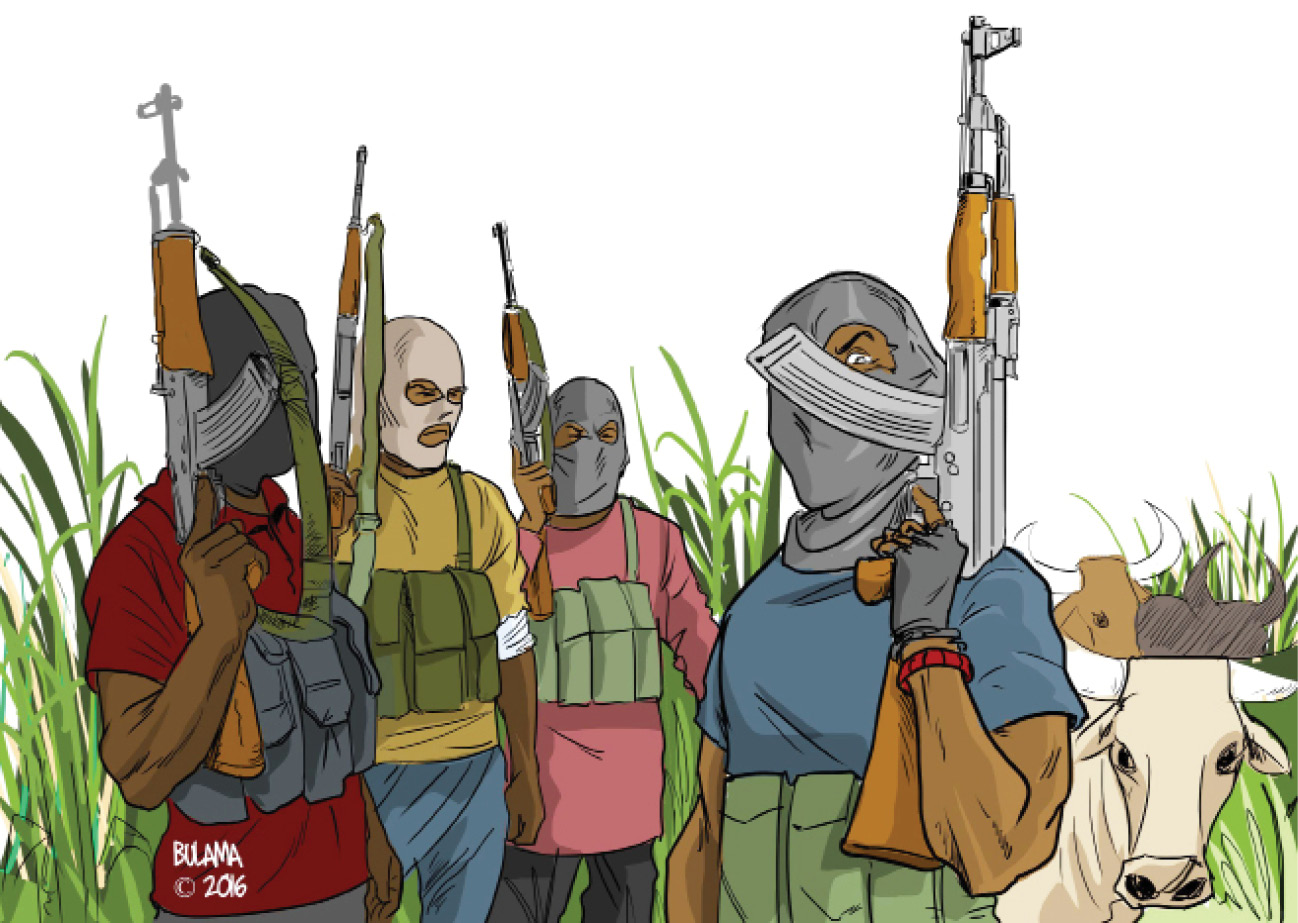Communities, especially those living in Nigeria’s Zamfara, Kaduna, Niger, Sokoto, Kebbi and Katsina states in the Northwest and North-central have been at the receiving end of armed banditry for several years now.
According to the Assessment Capacities Project ACAPS, about 21 million people living in these states have been exposed to insecurity from activities of bandits.
- How to end banditry in Nigeria —Security experts
- Buhari orders flag to fly at half-mast, declares holiday for armed forces
About 35 out of 92 local government areas in the 4 states are said to have been affected even as the discovery of gold mines and the activities of illegal miners competing for the control of gold reserves have served to further intensify the existence and activities of armed groups in the northwest.
Armed banditry violence assumed a new dimension as a farmer/herder conflict in 2011 and intensified around 2017 to 2018 to include; cattle rustling, kidnapping for ransom, sexual violence and killings. However, some analysts have traced its origin to the outcome of the Nigerian Civil War of 1967-1970.
Civil war factor
Kabiru Adamu, a security management and intelligence specialist, traced its origin to the civil war and what he termed, the inability or failure of the government in place then to carry out an effective demobilization programme.
“Yes, there was the 3Rs programme but the component of demobilization was not effective enough in mopping up the arms supply that could have been a very certain way of responding to the civil war. Those weapons were left in circulation,” he said.

Wars in neighbouring countries
Adamu also attributed the menace of banditry in Nigeria to the effect of the war in neighbouring countries such as Niger, Chad and the ‘kwanta-kwanta’ phenomenon in Borno State’ where armed individuals crossed the border into Nigeria and perpetrated the banditry.
“Unfortunately, other parts of the North, especially locations that are close to Niger and Chad were also affected. Therefore, a combination of internal and external factors, I would say, is the origin of armed banditry in Nigeria,” Adamu said.
Extortion by security agents
Another factor, which is the more recent, is the ineffective component of law enforcement of the state, especially the allegation of extortion by the police which meant that individuals instead of seeking redress with the law were allegedly extorted and resorted to arming themselves through armed banditry.
Professor Abubakar Siddique Mohammed, a lecturer in the department of Political Science and International Studies of the Ahmadu Bello University (ABU), Zaria has identified some immediate and remote causes of armed banditry in Nigeria, particularly in the north.
“One major factor was the decision of the Zamfara State government to clear large forests and cattle grazing reserves in its part of the Kuyanbana forest and Gidan Jaja areas of Maru and Zurmi Local Governments for farming. The policy resulted in the dislocation of many Fulani hamlets between Dansadau area and Maradun to Zurmi axes.
“The Fulani hamlets in these areas have existed for over 500 years. It is interesting to note that the Maradun area is famous for its position in the middle of Zamfara. Long before this policy of evicting pastoralists from their ancestral lands, injustices contrived by corrupt district heads in collaboration with farmers, corrupt police and corrupt judges had subjected the Fulani cattle herders in these areas to serial extortions. Over the years, these created an embittered group of dispossessed Fulani of dubious social and economic identities,” Mohammed said.
But to Dr. Tukur Muhammad Mukhtar of the Department of History, Usmanu Danfodiyo University Sokoto, banditry is a kind of offshoot of other criminal activities that the country had been facing.
According to him, bandits took advantage of the general security situation in our country to perpetrate their criminal activities.
“I am telling you this banditry didn’t start today. So go back to the last ten years and find out what happened with our governance. With our societal structures and situation then we will now understand how the banditry began. In the beginning, they were ordinary criminals that stole cows and whatever. But it took a different dimension because it later became a lucrative business.
“Now coupled with the porosity of our borders they got hold of arms, light weapons, and whatever. So this thing affected the rise of banditry activities. Now how could it be possible for a bandit to operate within the Gundumi forest? I always question myself when I pass through this forest, that three kilometers away from the main road, you can see whoever is there from both sides. Then how do they operate successfully,” Mukhtar lamented.
Consequences
Suffice it to say that armed banditry has come with telling consequences in Nigeria. “While the fundamental element of every society, including security, safety, livelihood, standard of living have become crippled as a result of armed banditry, it also contributes to the weakening of the state; especially the sovereignty of the Nigerian state to provide for its citizens as enshrined in the constitution and the social contract and in the long run it would lead to collapse of the state,” said Adamu.
While underlining the political, economic and social dimensions to the effect of banditry in Nigeria, Adamu said: “No matter how you look at it, it leads to a weakened state and a drop in the standard of living and all other functions of state. In the long run the respect which the country is being given in the comity of nations is gradually eroded. Consequently the possibility of the collapse of the state too cannot be excluded.”
It has also been estimated that by March 2020, more than 210,000 people have been internally displaced while over 35,000 refugees have crossed communal borders to Maradi in Niger Republic by the beginning of March 2020.
Aside displacement, the banditry violence has hampered agricultural activities and heightened the risk of acute food insecurity. Also, livelihoods have been disrupted, while fear and insecurity among the population have intensified. Concomitantly, Internally Displaced Persons (IDPs) and host communities are scrambling for scarce resources such as water, land and food.

 Join Daily Trust WhatsApp Community For Quick Access To News and Happenings Around You.
Join Daily Trust WhatsApp Community For Quick Access To News and Happenings Around You.


